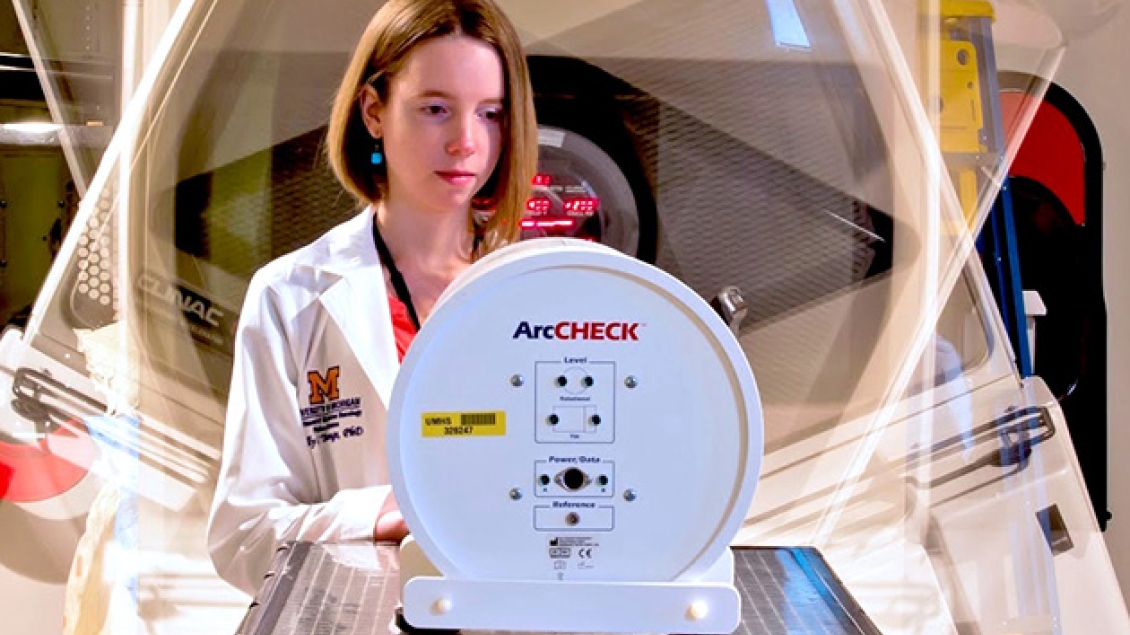
The University of Michigan Medical School Department of Radiation Oncology Medical Physics residency program curriculum provides two years of full-time clinical training divided into ten rotations. Learn more below about the schedule of rotations, coursework and teaching.
The residency program is designed to provide both didactic and clinical training over a period of two years (as required by the CAMPEP), with an additional 6-month long clinical development rotation, which typically starts after the successful completion of the first year. During the clinical development rotation, the residents will be involved in clinical projects to improve the efficiency of clinical flow, implement new clinical protocols and integrate new technology.
- General physics and quality assurance (2 months)
- Treatment planning (5 months)
- Brachytherapy and radiation safety I/II (4 months)
- Special procedures I/II (4 months)
- Shielding (1 month)
- Linear accelerator and algorithm commissioning (2 months)
- Intensity Modulated Radiation Therapy (IMRT) QA (2 months)
- Imaging (2 months)
- Advanced rotation (elective) (2 months)
- Clinical development rotation (clinical research) (6 months)
Each rotation is typically two to five months in length and is under the direct supervision of one or two faculty physicists. In addition to meeting with their rotation specific mentor(s) on a weekly or biweekly basis to discuss their progress, residents will also meet with either the director or associate director of the residency program monthly. Following the completion of a rotation, the resident is evaluated by their rotation specific mentor(s) and an additional faculty member typically via an oral examination. At the completion of the first year of clinical training, the resident takes a cumulative oral examination to move on to the 2nd year of residency. We have demonstrated that the experience of taking multiple oral examinations over the course of the residency serves to thoroughly prepare residents for board certification exams.
To complement their clinical training, medical physics residents may audit physician or radiation therapy student courses in radiobiology, clinical oncology and diagnostic radiology. However, these courses are intended as a refresher (and attendance much be approved by the program director or associate director) and are not intended to correct any deficiencies in their medical physics didactic training. Residents will be expected to attend weekly treatment planning conferences, weekly physics seminars, and monthly physics and physician journal clubs.
Medical physics residents will be expected to provide teaching assistance for the radiation therapy technician’s physics course or the radiation therapy medical resident’s physics course, if necessary. As a teaching assistant, they will be expected to attend all medical physics lectures. At the completion of the University of Michigan residency program, the resident will be prepared to practice Radiation Oncology Physic independently.